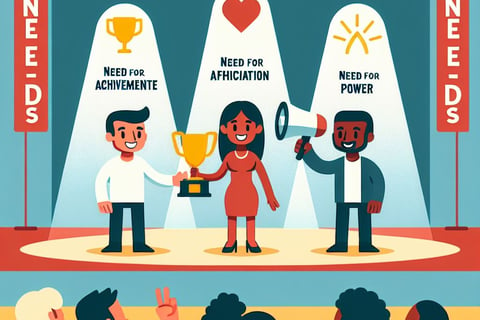The Three Pillars of Motivation: McClelland’s Theory of Needs
McClelland's Acquired Needs Theory explains that people are driven by three main needs:
Achievement, Power, and Affiliation. These needs are not something we are born with but are developed over time based on our experiences.
Need for Achievement: People with this need enjoy setting goals and accomplishing them. They thrive on challenges and want to succeed.
Need for Power: Those with this need are motivated by influence and control. They like leading others and making decisions.
Need for Affiliation: People with a high need for affiliation value relationships and seek to be part of a group. They are motivated by connection and harmony with others.
150+
15
Trusted by Many
Join Us


By identifying the dominant need in yourself or others, you can gain valuable insights into why people think and behave the way they do. Understanding these personality types helps you build stronger relationships, enhance teamwork, and foster personal growth, all while providing a clearer sense of purpose.
The LCE Framework: Learning, Creativity, and Emotions
The LCE framework focuses on three key areas that shape how we think, learn, and behave:
Learning: This involves how we acquire new knowledge and skills. People learn in different ways—some prefer hands-on experience, while others may learn better through reading or discussion.
Creativity: Creativity refers to the ability to think outside the box, solve problems, and come up with new ideas. It’s about how we use our imagination and originality in everyday tasks.
Emotions: Emotions play a big role in how we respond to situations and people. Understanding your emotional responses helps you manage stress, handle conflict, and interact better with others.
Using this framework, you can create a life plan that leverages your strengths, nurtures creativity, and helps you manage emotions, leading to greater success and fulfillment.


